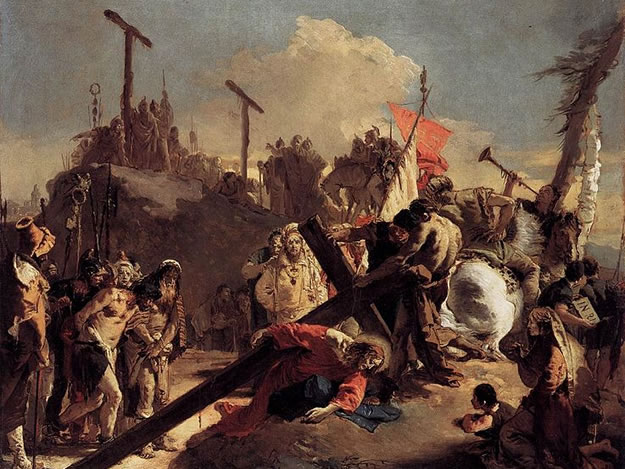EASTER
In the Gospel narratives, one of many important segments is when the three Marys arrived at the tomb of Jesus, the first to do so and noticed the stone closing the tomb, had been rolled away. At this point an angel appeared to them and said, “Do not be afraid; for I know that you seek Jesus who was crucified. He is not here; for he has risen.” (Mt 28:5-6) Every Easter, we renew the angel’s declaration and state, “He has risen.”

DIVINE MERCY DEVOTION
The Feast of Divine Mercy which had already been granted to Poland, was granted to the Universal Catholic Church by Blessed Pope John Paul II on the occasion of the canonization of Sister Faustina on April 30, 2000. In a decree dated May 23, 2000, the Congregation for Divine Worship and the Discipline of the Sacraments stated that, “…throughout the world the Second Sunday of Easter will receive the name Divine Mercy Sunday, a perennial invitation to the Christian world to face, with confidence in divine benevolence, the difficulties and trials that mankind will experience in the years to come.” Jesus revealed to Sister Faustina that, “Whoever approaches the Fountain of Life on this day will be granted complete forgiveness of sins and punishment.” (Diary 300).
Blessed Pope John Paul II, in an effort to further encourage the faithful to observe Divine Mercy Sunday with intense devotion, granted on this day a plenary indulgence. A plenary indulgence will be granted under the three usual conditions (sacramental confession, Eucharistic communion and prayer for the intentions of Supreme Pontiff) to the faithful who in any church or chapel, in a spirit that is completely detached from the affection for a sin, even a venial sin, take part in the prayers and devotions held in honor of Divine Mercy, or who, in the presence of the Blessed Sacrament exposed or reserved in the tabernacle, recite the Our Father and the Creed, adding a devout prayer to the merciful Lord Jesus (e.g. Merciful Jesus, I trust in you!”).
In granting this plenary indulgence, it was the desire of the Blessed Pope John Paul II, that the faithful would receive in great abundance the gift of consolation of the Holy Spirit, fostering a growing love for God and for their neighbor and after obtaining God’s pardon, that they in turn might be persuaded to show a prompt pardon to their brothers and sisters.
For a summary of this devotion, please visit our dedicated Divine Mercy Devotion page. Below are two sources for further in depth reading and details of this devotion: